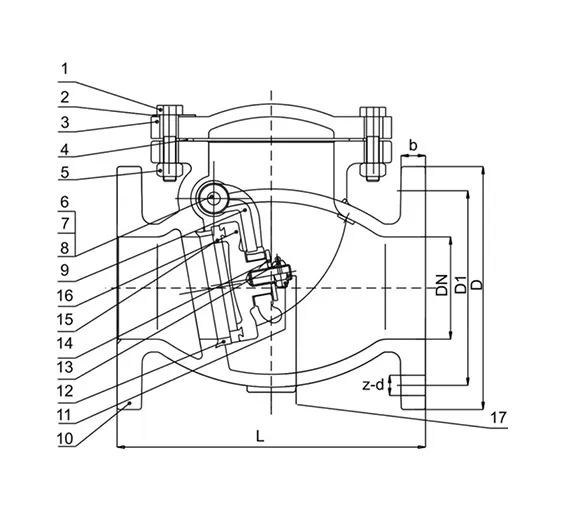Nën . 30, 2024 23:47 Back to list
ansi gate valve
Understanding ANSI Gate Valves Features and Applications
Gate valves are critical components in various industrial applications, particularly in the fields of water distribution, oil and gas, and chemical processing. Among the many types of gate valves available, ANSI (American National Standards Institute) gate valves are widely recognized for their adherence to established standards, ensuring reliability, durability, and efficiency in fluid flow management.
What is an ANSI Gate Valve?
ANSI gate valves are designed and manufactured according to specifications set forth by ANSI, which promotes safety and standardization across various industries. These valves function as on/off control devices, allowing or blocking fluid flow through a pipeline. When fully opened, ANSI gate valves provide minimal resistance to flow, making them ideal for applications where a straight-line flow of fluid is essential.
Key Features
1. Material Construction ANSI gate valves are typically constructed from materials such as cast iron, stainless steel, and bronze, ensuring robustness and longevity under various operational conditions. The choice of material directly affects the valve's capability to handle different pressures and temperatures.
2. Operation Mechanism These valves can be operated manually or automatically. Manual operation typically involves a handwheel that rotates a stem, lifting or lowering the gate within the valve body. Automated versions may utilize actuators for remote or timed operation, enhancing efficiency and safety.
ansi gate valve

3. Size Variety ANSI gate valves come in a wide range of sizes, accommodating different pipe diameters. This versatility allows them to be used in numerous applications, from residential plumbing to large-scale industrial systems.
4. Pressure Ratings ANSI standards categorize gate valves based on their pressure ratings, which can range from ANSI Class 150 to Class 2500. This rating system ensures that users can select a valve appropriate for their specific pressure requirements.
Applications
ANSI gate valves are versatile and find applications in numerous industries including
- Water Treatment They are extensively used in municipal water systems for controlling water flow and maintenance. - Oil and Gas In the oil and gas sector, ANSI gate valves are essential for controlling the flow of petroleum and natural gas, often operating under high pressure and temperature conditions. - Chemical Processing These valves are crucial in chemical plants where they manage the flow of corrosive and hazardous materials, ensuring safety and compliance with environmental regulations.
Conclusion
In summary, ANSI gate valves play a vital role in managing fluid flow across various sectors. Their adherence to ANSI standards ensures that they meet essential safety and operational efficiency requirements. By understanding their features and applications, engineers and procurement specialists can make informed decisions when incorporating these valves into their systems, ultimately contributing to the reliability and effectiveness of fluid management operations.
Share
-
Reliable Wafer Type Butterfly Valves for Every IndustryNewsJul.25,2025
-
Reliable Flow Control Begins with the Right Ball Check ValveNewsJul.25,2025
-
Precision Flow Control Starts with Quality ValvesNewsJul.25,2025
-
Industrial Flow Control ReliabilityNewsJul.25,2025
-
Engineered for Efficiency Gate Valves That Power Industrial PerformanceNewsJul.25,2025
-
Empowering Infrastructure Through Quality ManufacturingNewsJul.25,2025